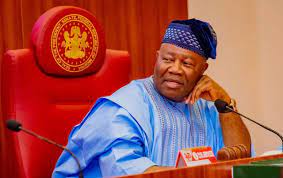The Constitution of the Federal Republic of Nigeria 1999 makes detailed provisions relating to political party finance and funding of electoral campaigns. In S.221, it states that: “No association, other than a political party, shall canvass for votes for any candidate at any election or contribute to the funds of any political party or to the election expenses of any candidate at an election”. This discourse seeks to analyse the implications of this constitutional provision on elections and how it can possibly be enforced.
The section identifies and bars three different kinds of conduct which no association other than a political party can do, as follows: (1) canvassing for votes for any candidate at any election (2) contributing to the funds of any political party and (3) contributing to the election expenses of any candidate at an election. If literally interpreted, it would mean that apart from individuals, no association of any type at all (religious, social, cultural, etc.) can donate to a political party or a candidate. There is nothing on the face of the provision of S.221 or any other section of the Constitution that suggests another canon of interpretation which is not literal or that the literal interpretation will lead to absurdity, injustice or ambiguity. Essentially, the Courts in construing the Constitution and statutes have held that where the words used are clear, the Court shall give effect to their literal meaning; (See Mobil Oil (Nig) Ltd v Federal Inland Revenue Service (1977) N.C.L.R. 1 at 16-17.
This raises the question of the mischief in existing law, for which there was no remedy and which the legislature wanted to suppress through the provision; (the rule in Heydon’s case (1584) 3 Co. Rep 7a and International Bank for West Africa Ltd v Imano (Nig) Ltd & Anor (1988) 3 NWLR (Pt.85) 633 at 688. Evidently, the legislature sought to limit funding for political parties and candidates and canvassing of votes to only political parties and natural persons. But the mischief is not clear. It will be recalled that S.1 (1) and (3) of the Constitution which is the supremacy of the Constitution clause provides that: “This Constitution is supreme and its provisions shall have binding force on all authorities and persons throughout the Federal Republic of Nigeria”: (3) “If any other Law is inconsistent with the provisions of this Constitution, this Constitution shall prevail, and that other Law shall to the extent of its inconsistency be void”. Therefore, expenditure of funds and canvassing for support in favour of a candidate or political party by an association falling within this constitutional provision is illegal.
Before the alterations to the Constitution in 2011, section 229 of the Constitution had stated that association means: “any body of persons corporate or unincorporate who agree to act together for any common purpose, and includes an association formed for any ethnic, social, cultural, occupational or religious purpose”. The alterations deleted the above definition, but the word “association” has not changed its meaning. The Black’s Law Dictionary defines association as follows: “The act of a number of persons in uniting together for some special purpose or business. It is a term of vague meaning used to indicate a collection or organisation of persons who have joined together for a certain or common object. Also, the persons so joining; the state of being associated”. Thus, the literal meaning of S. 221 prohibits associations from meddling in politics.
Unfortunately, there are no sanctions either in the Constitution or in the Electoral Act for the violation of the provision. It is hanging and has beenseverely violated in the past. Corporate Nigeria under President Olusegun Obasanjo and the Transformation Ambassadors under President Goodluck Jonathan brazenly violated the provision without any sanction. For the norm to be respected, there is a need for sanctions. This ridicules the majesty of the law which Austinian positivism defines as the command of the sovereign backed by sanctions. The provision looks like a mere moral adjuration.
Two alternatives are possible. The first is the amendment of the Constitution to delete the section since it can be argued that it is serving no useful purpose. The utility of this provision can be questioned because it does not accord with the normal societal practices in Nigeria and it does not seem to have an ethical foundation in terms of contributions to political parties by associations being ethically and morally reprehensible. If the first option is not feasible or chosen, the second option is to replicate this section in the Electoral Act and thereafter proceed to provide sanctions for violating the provision. The penal section may read: “Any association, other than a political party which in contravention of section 221 of the Constitution canvasses for votes for any candidate at any election or contributes to the funds of any political party or to the election expenses of any candidate at an election commits an offence and the principal officers who authorized the offence shall on conviction be liable to imprisonment for not more than one year or a fine of one million naira or both”.




